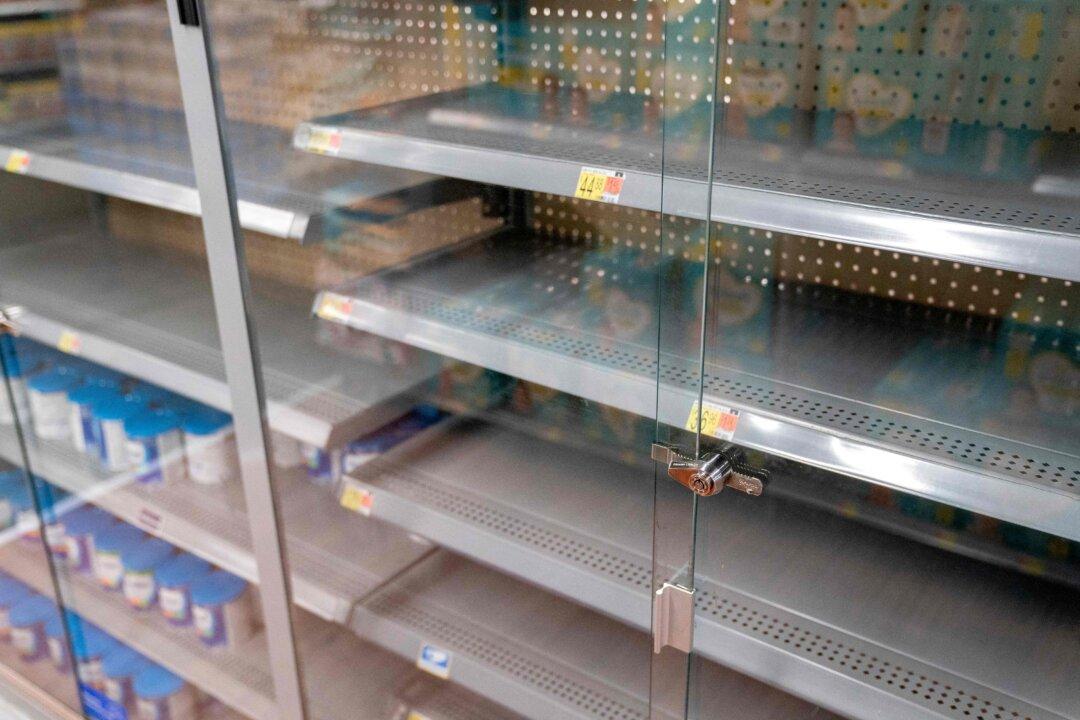Abbott Laboratories CEO Robert Ford apologized for the nationwide baby food formula shortages in a Washington Post op-ed on May 21.
“And yes, we take great pride in manufacturing nutrition and formula to feed America’s infants, including our most vulnerable,” Ford wrote. “But the past few months have distressed us as they have you, and so I want to say: We’re sorry to every family we’ve let down since our voluntary recall exacerbated our nation’s baby formula shortage.”





